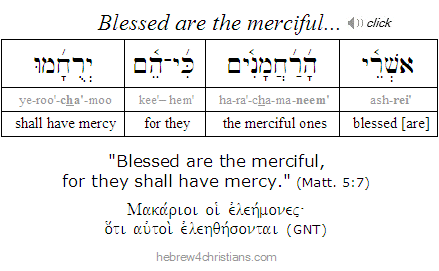 The Last Call Devotions Network
The Last Call Devotions Network
"Legacy"
Legacy Posts will be presented in Weekly Formats
Begining in May and starting ASAP posts as part of our "Legacy Series" will be posted on Monday AM for the Week. Some of the Classics will post a Sun-Sat; others will be Mon-Fri. This "note" or one similar to it will proceed all Last Call posts for the remainder of this year; 2011. The benefit to the reader is to have a "weeks" worth of Devotions to Read.
As a "free ministry" the Network has exapnded globally and this is a adjustment to grow with that need. The "Current" Series of Devotions will begin to follow the same format. It is likely that many in the "Current" series will be on a One week delay. Any comments or questions please write: lastcalldevotionalnetwork@gmail.com
This Weeks

Greg Laurie Devotionals
Devotionals For
Sunday-Saturday
March 27th-April 2
Devotional For
Sunday
March 27
Jesus said to him, "Thomas, because you have seen Me, you have believed. Blessed are those who have not seen and yet have believed." Some people say they cannot have faith because they are practical. They need to know something is true before they can believe it. But we all apply faith every day. When you go to a restaurant, order a meal, and eat what they bring, that is faith. You are not sure if they followed all the sanitary guidelines they are supposed to follow. You don't know whether the waiter might be a little ticked off at you and has thrown a few little surprises into your entree. You don't know. So you apply faith. When you go down to the pharmacy to fill your prescription, you assume the little pills the pharmacist gave you are actually the ones you ordered and not a placebo, or even worse, another kind of medication that could be harmful to you. You apply faith. When you have surgery and are put under anesthesia, you must put complete faith in the anesthesiologist, surgeons, and nurses. Or how about when you board a plane and taxi down the runway in that 747? Do you understand aerodynamics? Most of us wouldn't. Yet we believe those pilots in the cockpit are hopefully not drunk or distracted. We hope they will get us safely to our destination. My point is this: we apply faith each and every day. Faith is belief plus action. It is what we apply when we initially come to Jesus Christ. We acted on something that we accepted as true. The Bible says, "For by grace you have been saved through faith" (Ephesians 2:8). So when someone refuses to put their faith in God, it leaves me wondering. They can put faith in a waiter, in a pharmacist, in a surgeon, and in a pilot, but they won't put their faith in God Almighty.Devotionals by A New Beginning

—John 20:29
-----------------------
Devotional For
Monday
March 28
Devotionals by A New Beginning

But at midnight Paul and Silas were praying and singing hymns to God, and the prisoners were listening to them.
—Acts 16:25
The Bible defines faith this way: "Now faith is the substance of things hoped for, the evidence of things not seen" (Hebrews 11:1). Another translation puts it this way: "Faith is the confidence that what we hope for will actually happen; it gives us assurance about things we cannot see" (nlt).
The very existence of our faith, despite our circumstances, is a proof of God. We have the title deed. God has given us this proof, this confident assurance. It is instilled in us by God himself. And that is a powerful witness to a lost world that doesn't have faith.
We know from the stories of the early church how many of these courageous men and women, and sometimes even children, were martyred for their faith. Even as they were being executed, suffering horrible deaths, we read of them calling on the Lord and asking God to forgive the people who were doing this to them. And there are many accounts of their executioners coming to faith as a result of the Christians' faith in God as they went into His presence.
The story of Paul and Silas, who sang praises to God at midnight after being beaten and thrown into prison, is another evidence of faith. It resulted in the conversion of their jailers. Theirs wasn't a case of mind over matter. It was faith over circumstances. Paul and Silas didn't have the guaranteed assurance they ever would get out of that prison. But they were able to see things in perspective and have faith in the bleakest of circumstances.
So what does it mean when we say we should have faith? It means that we are hoping. We are trusting in God. In what circumstances do you need to exercise faith today?
**************************************************************
Devotional For
Tuesday
March 29
Devotionals by A New Beginning

For I say, through the grace given to me, to everyone who is among you, not to think of himself more highly than he ought to think, but to think soberly, as God has dealt to each one a measure of faith.
—Romans 12:3
A lot of people talk about their faith. They sing about faith. They even analyze the word "faith." But they never actually use their faith.
Faith is the consent of the will to the assent of the understanding. Faith always has in it the idea of action. It is movement toward its object. Faith is a restless, living thing. It cannot be inoperative. Faith moves. Faith acts. Faith does. It doesn't just sit; it has to move.
And faith develops by listening to, studying, and immersing ourselves in the Word of God. Romans 10:17 tells us, "So then faith comes by hearing, and hearing by the word of God." That is why Jesus said, "He who has ears to hear, let him hear!" (Matthew 11:15). It is another way of saying, "Listen up." It is attention with intention. It is all in how we listen.
If we hear the Word of God, our faith will grow. And when we hear the Word of God, it puts everything else into perspective, because in the light of Scripture we see God for who He is. Thus, we see all of the challenges of life for what they are. We see everything the way we ought to see it. The apostle Paul wrote, "All Scripture is given by inspiration of God, and is profitable for doctrine, for reproof, for correction, for instruction in righteousness" (2 Timothy 3:16).
Faith is also developed through use. Some of us treat faith like it is fragile. But that is not what faith is like. Faith is tough. Faith is resilient. Faith gets stronger through use. Faith is like a muscle. You build up your muscle by effectively tearing it down, by using it. You get stronger by applying yourself. And the same is true of faith.
*********************************************************
Devotional For
Wednesday
March 30
Devotionals by A New Beginning
Now He did not do many mighty works there because of their unbelief. Faith can make all the difference between something happening and not happening. The Bible tells us that Jesus could do no mighty work in His hometown because of unbelief (see Matthew 13:57-58). God is sovereign. He can do whatever He wants whenever He wants with whomever He wants. He doesn't need our opinion. He doesn't need us to vote on it. He just does it. However, the sovereign God that we worship and follow has chosen to primarily accomplish His purposes through human instruments. Now if I were God, I would not have made that selection. If I were God, I would just do things myself. Why mess around with humanity? We will only make a mess of things. But God has primarily chosen to do His work through people. When God wanted to part the Red Sea, He didn't need Moses to hold up his rod. God was doing the work. But He commanded Moses to stretch out his rod over the sea, and the waters parted. God didn't need Elijah to pray for fire to come down from heaven. God didn't need Noah to build an ark. He could have created His own ocean craft for the animals, Noah, and his family. But God worked through human instruments to accomplish His purposes. It is interesting to note that Jesus did not heal everyone. But He did heal the ones who called out to Him, like the blind man who heard that Jesus was coming his way. He cried, "Jesus, Son of David, have mercy on me!" (Luke 18:38). Someone told him to be quiet, but that made him yell even more. So Jesus heard his cry, stopped, and that man was healed. God responds to faith. Unbelief hinders the work of God, but faith unleashes it.
—Matthew 13:58
********************************************************
Devotional For
Thursday
March 31
Devotionals by A New Beginning

And Peter answered Him and said, "Lord, if it is You, command me to come to You on the water." So He said, "Come." And when Peter had come down out of the boat, he walked on the water to go to Jesus.
—Matthew 14:28-29
Peter is often cited as an example of what not to do and what not to say. But let's give him credit where credit is due. In Matthew 14, when Jesus sent the disciples across the Sea of Galilee and a great storm came, they began to panic and despair. Then, just as dawn was beginning to break, Jesus came to them, walking on the water. But when they saw Him, they thought He was a ghost. So Jesus said to them, "Be of good cheer! It is I; do not be afraid" (verse 27).
Then Peter said, "Lord, if it is You, command me to come to You on the water" (verse 28). Jesus told him to come, and then Peter got out of the boat and began walking on the water to go to Jesus. This is what we would describe as muscular faith, believing faith. Jesus told Peter to come to Him, but it took faith on Peter's part to do it. Faith is the refusal to panic. Faith has no safety net. This was Peter and Jesus, and he was going for it. These were rough seas, and Peter did the impossible. He waited for a command from Christ, and looking at Jesus, he defied the odds and walked on water. No one had done this before—or has done it since.
We are to build our faith on what the Word of God says. We don't just step out and say, "By faith, I want this. By faith, I demand that." Instead we ask, "What does the Scripture teach? What should I be praying for? What should I be asking for?" And then we pray accordingly. That is what Peter did. And as long as he had his eyes on Jesus, he was able to do the impossible.
*****************************************************
Devotional For
Friday
April 1
And immediately Jesus stretched out His hand and caught him, and said to him, "O you of little faith, why did you doubt?" And when they got into the boat, the wind ceased. Have you ever stepped out in faith, lost your nerve, and started to sink? We all will have lapses of faith. We all will have those moments where we are not sure of what we are doing. It is not all that unusual. So what should we do when this happens? We should call out to Jesus. When Peter stepped out in faith at Jesus' command and began walking on water, fear set in and he began to sink. So he cried out to Jesus, and the Bible tells us that "immediately Jesus stretched out His hand and caught him, and said to him, ‘O you of little faith, why did you doubt?' " (Matthew 14:31). Notice that Jesus did not say, "Hey, you made your bed. Sleep in it. You had to be out there doing this crazy thing. It's your own fault." No, that is not what happened. The Bible says that immediately Jesus reached out. In the original language, the two words, "little faith" are one word. There is almost the idea of affection in the term used here, almost like a nickname—Littlefaith. It's as though Jesus were saying, "Come on, man! You were doing so well! Why did you doubt?" Then Jesus lifted him up, and they walked on water again. We don't read that the storm stopped until they reached the boat. It was still raging. But Peter had his focus back, and with his eyes on Jesus, he was once again able to do the impossible. We should never doubt our beliefs and believe our doubts. Instead, we should believe our beliefs and doubt our doubts. Peter did fail. But it was a spectacular failure. And if you are going to fail, then this is the way to do it.Devotionals by A New Beginning

—Matthew 14:31-32
***************************************************
Devotional For
Saturday
April 2
Devotionals by A New Beginning

My brethren, count it all joy when you fall into various trials, knowing that the testing of your faith produces patience. But let patience have its perfect work, that you may be perfect and complete, lacking nothing.
—James 1:2-4
The problem with diets is that they are fine until you are hungry. Anyone can go on a diet when they have a full stomach. But when you're hungry, food is a lot more tempting.
In the same way, the enemy knows how to package his wares to make bad things look good. That is because things forbidden have a certain charm. Case in point: at the beginning of Genesis 3, we find Eve at the very tree God told her to stay away from. We are attracted to the things that we should avoid.
As a result, we sometimes feel guilty when we are tempted. But we need to know there is no sin in being tempted. It is not the bait that constitutes temptation; it is the bite. It is when you give in to the temptation that it is a sin.
Matthew Henry said, "The best of saints may be tempted to do the worst of sins." So if you are being barraged by temptation of late, it just may be an indication that you are doing something right, not wrong. The enemy sees you as a threat to his kingdom, and thus he is trying to bring you down.
Temptation can actually have a positive effect in the life of a Christian. It can actually make us stronger. The Bible says, "Blessed is the man who endures temptation; for when he has been approved, he will receive the crown of life which the Lord has promised to those who love Him" (James 1:12). As Martin Luther said, "One tempted Christian is more profitable and useful to other Christians than a hundred, I may add, than a thousand, that have not known the depths of Satan, that have not been in the school of temptation."
|
"If you can't read it on One Site, try another view"
Last Call Digest Last Call Devotionals Last Call Devotions Last Call Journal


















